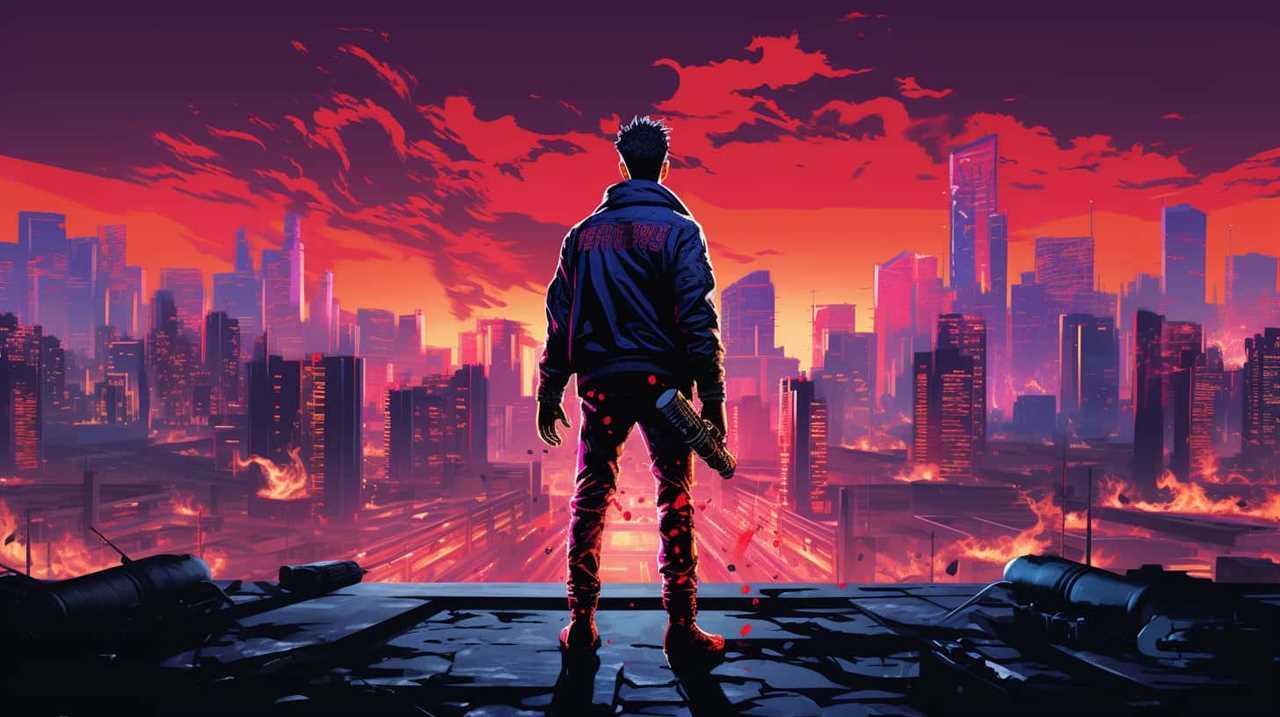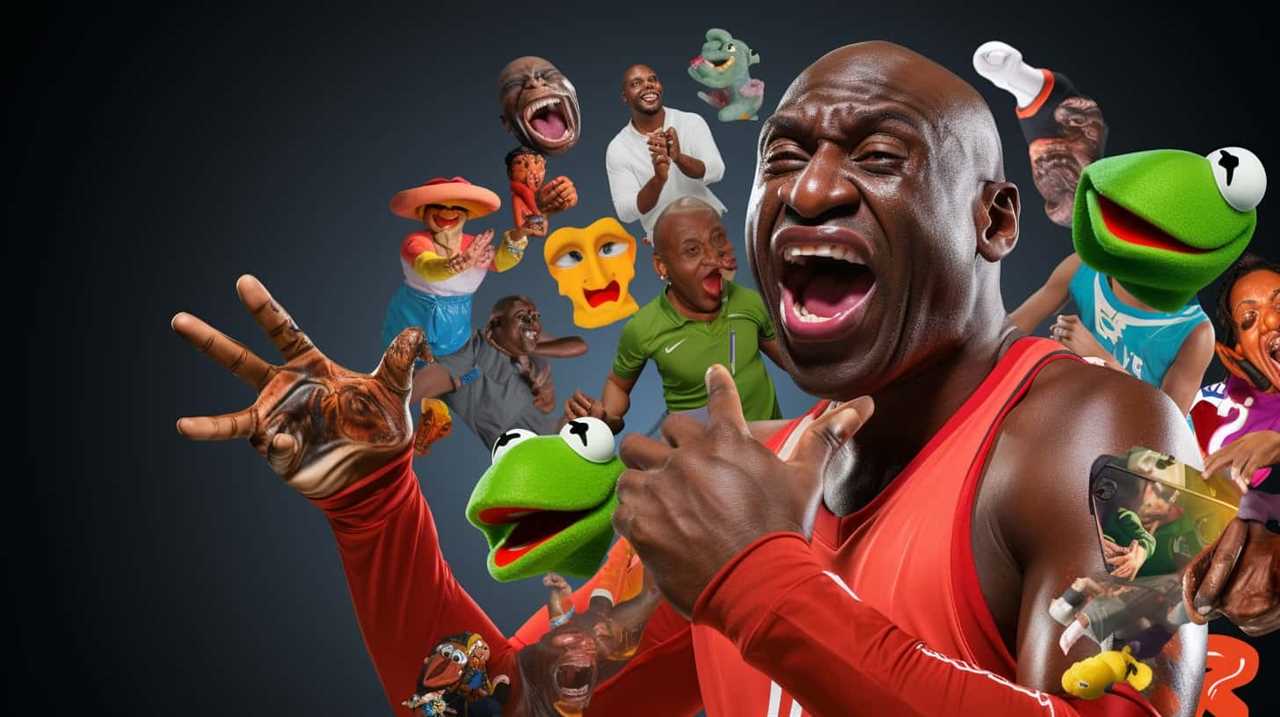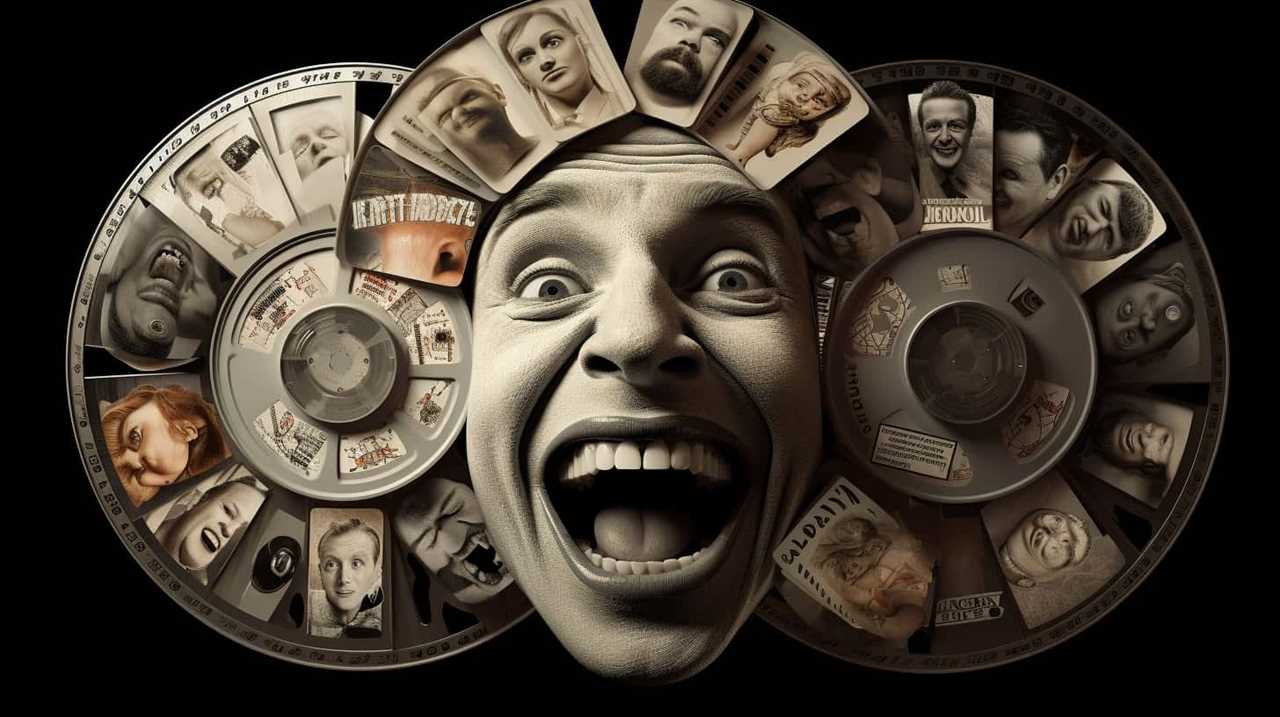“Unforgettable Villain Speeches: The Influence of Evil in Film is a fascinating exploration of the chilling monologues that have captivated audiences and cemented a lasting legacy in the realm of cinema. Prepare to be intrigued as we delve into the sinister minds of some of the most iconic villains to grace the silver screen.”
From the haunting words of the Joker in The Dark Knight to the bone-chilling revelations of Hannibal Lecter in Silence of the Lambs, these monologues will send shivers down your spine. Each speech is a masterclass in malevolence, delivered with a calculated intensity that will leave you mesmerized.
Join me on this journey as we unravel the depths of evil and witness the power of words that have become etched in our collective consciousness.
Key Takeaways
- Iconic villain monologues have the power to manipulate and prey on the vulnerabilities of their audience, leaving them questioning their own moral compass.
- The delivery of a villain’s monologue, such as the deep, menacing voice of Darth Vader, adds to their impact and creates an aura of fear and domination.
- Symbolism plays a significant role in villain monologues, such as the use of harsh sounds and references to pain and suffering in Vader’s speech, which adds depth to the character and represents evil and corruption.
- Intense interrogations and unsettling conversations, like Jessup’s monologue and Chigurh’s conversation, highlight power dynamics and psychological manipulation, leaving a lasting impact on the audience and raising questions about morality and those in positions of power.
The Dark Knight: Joker’s Haunting Monologue
What makes the Joker’s haunting monologue in ‘The Dark Knight’ so unforgettable? It’s the combination of the Joker’s psychological manipulation and his twisted philosophy that truly captivates audiences.

The Joker, brilliantly portrayed by Heath Ledger, delivers a monologue that not only sends chills down our spines but also forces us to question our own moral compass.
Through his words, the Joker effectively manipulates the minds of those around him, planting seeds of doubt and chaos. His ability to prey on people’s vulnerabilities is a testament to his diabolical nature.
What sets the Joker apart from other villains is his twisted philosophy, which challenges societal norms and pushes the boundaries of human nature. His monologue forces us to confront our own darkness and question the fragility of our moral code.
The Joker’s haunting monologue in ‘The Dark Knight’ is a masterclass in psychological warfare. His words linger in our minds long after the movie ends, leaving us unsettled and haunted by the depths of evil that exist within us all.

Transitioning into the subsequent section about ‘Silence of the Lambs: Hannibal Lecter’s chilling words’, we can see that both the Joker and Hannibal Lecter share a similar ability to manipulate and disturb us with their words.
Silence of the Lambs: Hannibal Lecter’s Chilling Words
How does Hannibal Lecter’s chilling dialogue in ‘Silence of the Lambs’ unsettle and disturb viewers? Here are three reasons why his words have such a profound impact:
- Hannibal Lecter’s manipulation: Lecter’s ability to manipulate others is a central theme in the film. His words and actions are carefully calculated to elicit certain responses from those around him. This manipulation is deeply unsettling, as it demonstrates the extent of Lecter’s power and control over others. His ability to get inside the minds of his victims and exploit their weaknesses is nothing short of horrifying.
- Psychological warfare: Similar to the Joker in ‘The Dark Knight,’ Lecter engages in psychological warfare with those who interact with him. His chilling words are designed to create fear, uncertainty, and doubt in the minds of his victims. By delving into their deepest fears and insecurities, Lecter is able to break them down mentally and emotionally. This psychological manipulation leaves a lasting impression on viewers, as it taps into our own fears and vulnerabilities.
- The duality of Lecter’s character: Lecter is a complex character, possessing both charm and an insatiable hunger for human flesh. This duality is reflected in his dialogue, which oscillates between moments of chilling calmness and terrifying intensity. It’s this juxtaposition of his calm, composed demeanor and his underlying darkness that makes his words so unsettling. We’re constantly reminded that beneath Lecter’s polite facade lies a truly monstrous individual.
The Empire Strikes Back: Darth Vader’s Sinister Speech
Darth Vader’s monologue in The Empire Strikes Back is undeniably impactful, leaving a lasting impression on audiences. His deep, menacing voice and the way he delivers his lines with calculated precision adds to the overall sinister atmosphere.
Furthermore, the symbolism in his speech, particularly when he reveals his true identity to Luke Skywalker, showcases the complexity of his character and the depth of his connection to the dark side of the Force.
Impact of Vader’s Monologue
One can’t help but be captivated by the chilling impact of Vader’s monologue in The Empire Strikes Back. The significance of the menacing tone in his speech is undeniable.
Here are three reasons why Vader’s monologue leaves a lasting impression:
- Intensity: Vader’s deep, commanding voice coupled with his imposing presence creates an aura of fear and domination. The audience is immediately drawn into his dark world, feeling the weight of his power.
- Revelation: In his monologue, Vader reveals the shocking truth about his connection to Luke Skywalker. This revelation adds depth to the story and leaves viewers on the edge of their seats, eager to see how this revelation will impact the characters and the overall plot.
- Emotional Impact: The menacing tone of Vader’s monologue evokes a range of emotions in the audience. From fear and unease to curiosity and intrigue, viewers are emotionally invested in the story, eager to see how the conflict between Vader and Luke will unfold.
Vader’s monologue is a masterclass in creating a sense of dread and anticipation, leaving an indelible mark on audiences and ensuring its place in cinematic history.
Symbolism in Sith Speech
In exploring the symbolism within Sith speech, particularly in The Empire Strikes Back: Darth Vader’s sinister speech, I am struck by the underlying meaning conveyed through the use of certain linguistic elements. The Sith language significance and metaphorical references in Vader’s speech add depth and nuance to his character, making him more than just a simple villain.

| Sith Language Significance | Metaphorical References |
|---|---|
| Harsh, guttural sounds | Conveys power and darkness |
| Emphasis on dominance | Reflects the Sith’s desire for control |
| Use of "dark side" | Symbolizes evil and corruption |
| References to pain and suffering | Represents the Sith’s willingness to inflict harm |
| Choice of words | Demonstrates Vader’s cruelty and ruthlessness |
A Few Good Men: Colonel Jessup’s Intense Interrogation
When it comes to iconic villain monologues, Colonel Jessup’s intense interrogation in ‘A Few Good Men’ stands out for its raw intensity and impact.
As Jessup delivers his monologue, the audience is captivated by his commanding presence and the sheer force of his words.
The intensity of the scene is further heightened by the high-stakes nature of the interrogation, leaving a lasting impression on viewers.
Intensity of Jessup’s Monologue
During Colonel Jessup’s intense interrogation in A Few Good Men, the intensity of his monologue is palpable. Jessup’s commanding presence and powerful delivery captivate the audience, leaving them on the edge of their seats. Here are three reasons why his monologue is so intense:

- Ruthless determination: Jessup’s unwavering commitment to his beliefs is evident throughout his monologue. He uses every word to assert his authority and dominance, making it clear that he’ll stop at nothing to protect what he believes is right.
- Power dynamics: The power dynamic between Jessup and the other characters adds to the intensity of the scene. As a high-ranking military officer, Jessup holds immense power over those who are questioning him. This power imbalance heightens the stakes and creates a sense of danger.
- Emotional intensity: Jessup’s monologue is filled with raw emotion. His anger, frustration, and passion shine through, making his words all the more impactful. The intensity of his emotions resonates with the audience, drawing them further into the scene.
As the intensity of Jessup’s monologue reaches its peak, it sets the stage for the subsequent section on the impact of intense interrogation.
Impact of Intense Interrogation
I was captivated by the impact of Colonel Jessup’s intense interrogation in A Few Good Men. The scene not only showcases the power dynamics between the characters, but also highlights the psychological manipulation at play.
As Jessup relentlessly questions the accused, his aggressive and intimidating demeanor leaves a lasting impact on the audience. The tension in the room is palpable, as we witness the manipulation tactics employed by Jessup to break down the defendant.
This intense interrogation scene not only showcases the character’s ruthlessness, but also serves as a reminder of the lengths people will go to protect their own interests. It leaves the audience questioning the morality of those in positions of power, and sets the stage for the subsequent unsettling conversations in ‘No Country for Old Men.’

No Country for Old Men: Anton Chigurh’s Unsettling Conversation
Anton Chigurh’s unsettling conversation in ‘No Country for Old Men’ leaves a lasting impression on viewers. The impact of Chigurh’s unsettling words is undeniable, as they not only showcase the character’s chilling nature but also serve as a powerful tool of symbolism.
Here are three key elements that make this conversation so memorable:
- Symbolism in Chigurh’s conversation: Throughout the film, Chigurh represents an embodiment of pure evil. His conversation with various characters reflects this symbolism, as he presents himself as a harbinger of death and destruction. His unsettling words are like a foreboding presence, reminding us of the fragility of life and the inherent darkness that exists within humanity.
- The power of Chigurh’s words: Chigurh’s words have a hypnotic effect on both the characters in the film and the audience. His calm and calculated demeanor, coupled with his menacing tone, creates an atmosphere of unease and tension. Each word he speaks carries weight, leaving us on the edge of our seats, captivated by his unsettling presence.
- The psychological impact on viewers: Chigurh’s conversation goes beyond the screen and seeps into the minds of the audience. His words linger long after the movie ends, haunting our thoughts and challenging our perceptions of morality and the human condition. This unsettling conversation forces us to confront our own fears and question the depths of darkness that exist within us.
As we delve further into the world of iconic villain monologues, let’s shift gears to another unforgettable character and explore Jules Winnfield’s biblical revelation in ‘Pulp Fiction’.
Pulp Fiction: Jules Winnfield’s Biblical Revelation
Continuing from the previous subtopic, Chigurh’s unsettling conversation in ‘No Country for Old Men’ sets the stage for another unforgettable villain monologue: Jules Winnfield’s biblical revelation in ‘Pulp Fiction’. In this iconic scene, Jules, played by Samuel L. Jackson, undergoes a profound transformation that marks the turning point in his redemption journey.

The symbolism in Jules’ biblical revelation is profound and thought-provoking. As he recites the verse from Ezekiel, he embraces a newfound understanding of the consequences of his actions and the power of redemption. The table below highlights the key elements of this memorable monologue:
| Symbolism | Meaning |
|---|---|
| The briefcase | Represents the allure of material possessions and the consequences they bring |
| The divine intervention | Suggests that Jules’ redemption is not just a personal journey, but a higher power guiding him |
| The path of the righteous man | Symbolizes the righteous path Jules must choose to redeem himself |
Through Jules’ monologue, Quentin Tarantino explores the themes of morality, redemption, and the power of choice. Jules’ realization that he can choose to walk the righteous path rather than continue down a destructive one is a pivotal moment in the film.
The Shining: Jack Torrance’s Descending Madness
As the descent into madness unfolds in ‘The Shining’, Jack Torrance’s transformation becomes increasingly unsettling. Isolated in the eerie Overlook Hotel, Jack’s psyche begins to unravel, mirroring his physical isolation. Here are three key factors that contribute to Jack Torrance’s descending madness:
- Psychological Isolation: Jack’s isolation from the outside world intensifies his descent into madness. Cut off from society, he becomes trapped in the labyrinthine corridors of his own mind. This isolation fuels his paranoia, amplifying his already fragile mental state.
- The Overlook Hotel’s Malevolent Influence: Like the Joker’s twisted philosophy in ‘The Dark Knight’, the Overlook Hotel acts as an agent of chaos, amplifying Jack’s darkest impulses. The hotel’s haunting history and supernatural presence further erode Jack’s sanity, pushing him further down the path of madness.
- The Demonic Temptation: Similar to the Joker’s manipulation of Harvey Dent, Jack is seduced by the malevolent forces within the hotel. He succumbs to the temptation to unleash his repressed anger and violence, becoming a vessel for the hotel’s sinister agenda.
As Jack’s madness deepens, he transforms into a truly terrifying figure, embodying the darkness lurking within the human soul. ‘The Shining’ serves as a chilling reminder of the destructive power of isolation and the fragility of the human mind.

Frequently Asked Questions
How Did the Actors Prepare to Deliver These Iconic Villain Monologues?
To deliver those iconic villain monologues, actors use acting techniques and conduct character research. By diving deep into the psyche of their character, they bring forth the evil in a way that captivates and haunts the audience.
What Impact Did These Villain Monologues Have on the Audience When the Movies Were First Released?
When these villain monologues were first released, they had a profound impact on the audience. Their cultural significance cannot be overstated. They not only captivated viewers but also influenced future villains, setting a new standard for evil on screen.
Were There Any Alternate Versions or Improvised Lines of These Villain Monologues That Didn’t Make It Into the Final Films?
Alternate versions and improvised lines of these villain monologues often exist, showcasing the creativity and flexibility of actors. These unseen variations provide insight into the acting process and the potential for even more memorable evil on screen.
Did These Villain Monologues Undergo Any Changes During the Editing Process?
During the editing process, changes were made to these villain monologues, highlighting the importance of editing in crafting memorable evil on screen. It’s fascinating to see how slight alterations can enhance the impact and leave a lasting impression on the audience.

Have Any Other Movies or Characters Since Then Tried to Replicate the Impact of These Iconic Villain Monologues?
Influence on pop culture and the evolution of villain monologues have led to attempts by other movies and characters to replicate the impact of these iconic villain speeches. However, few have achieved the same level of memorability and evil brilliance.
What Makes a Villain’s Monologue Memorable and Iconic?
Some of the best villain monologue quotes have become iconic due to their unforgettable delivery and impact on the storyline. A memorable villain’s monologue is characterized by its chilling rhetoric, captivating performance, and insightful depiction of the character’s motivations and beliefs. These monologues stay with the audience long after the movie or show ends.
Conclusion
In conclusion, these iconic villain monologues demonstrate the power of words in creating memorable evil on screen.
From the Joker’s haunting monologue in The Dark Knight to Hannibal Lecter’s chilling words in Silence of the Lambs, each villain leaves a lasting impact on the audience through their sinister speeches.
Through the use of alliteration, these monologues add a level of sophistication to the writing, engaging viewers and providing deeper insight into the dark minds of these unforgettable villains.

Lauren’s talent in writing is matched by her passion for storytelling. Her love for books and deep understanding of culture and entertainment add a distinct flavor to her work. As our media and press contact, Lauren skillfully bridges the gap between afterQuotes and the broader media landscape, bringing our message to a wider audience.










